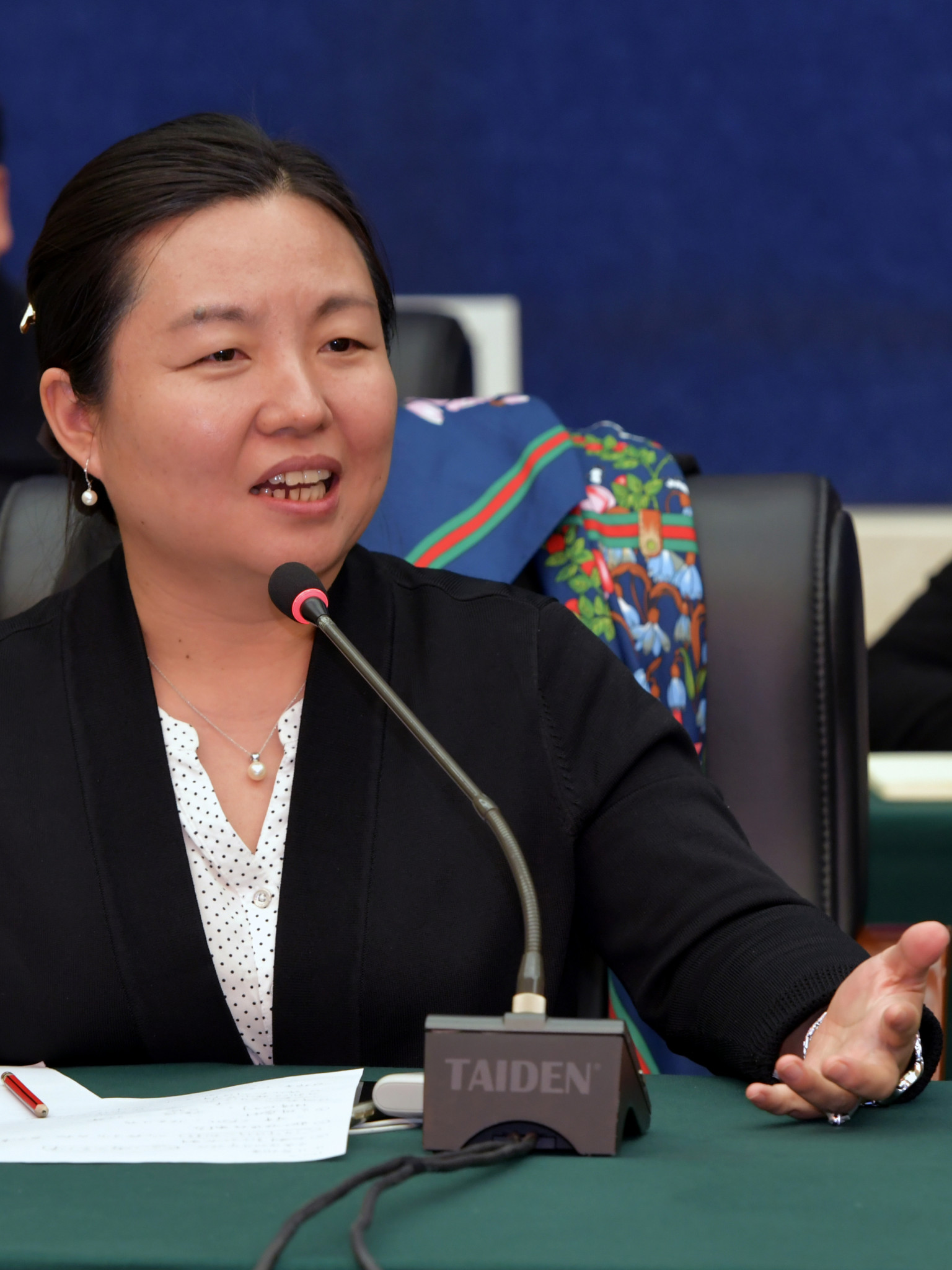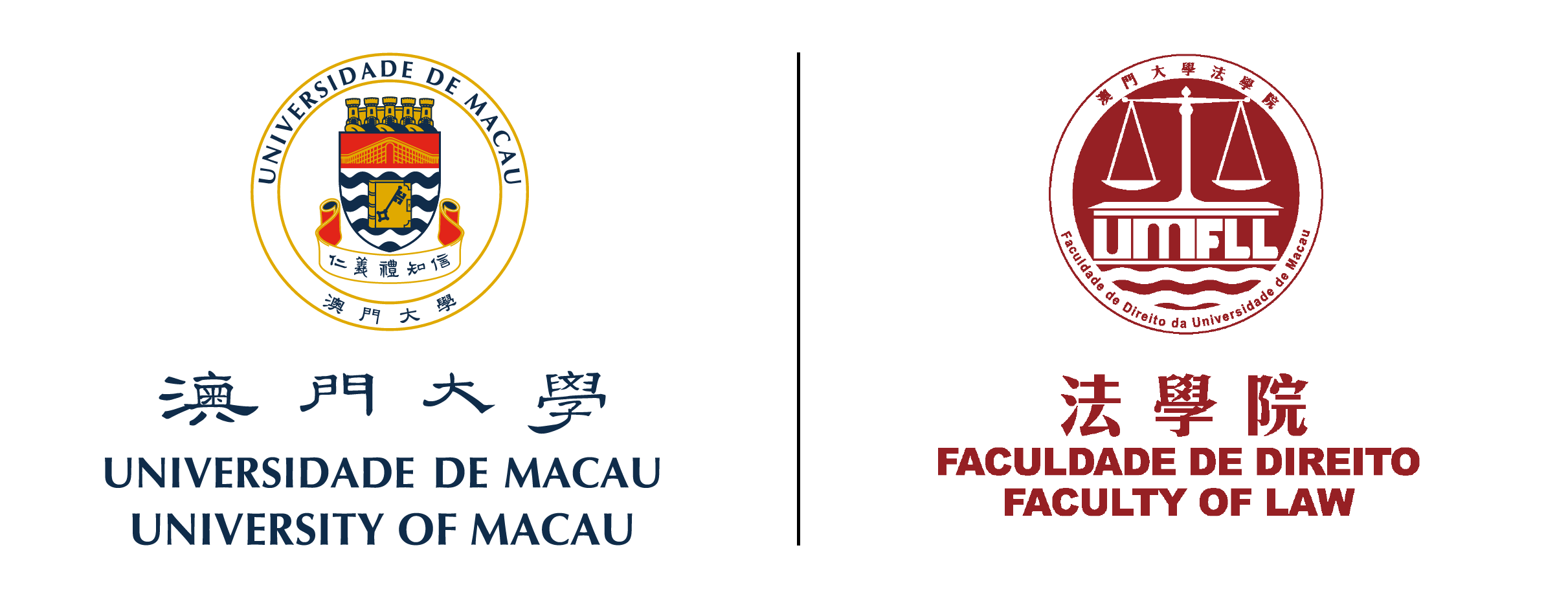Text: Davis Ip & Debby Seng │ Photo: Davis Ip, with some provided with interviewees
Editor’s Note: Since the novel coronavirus outbreak and the consequent suspension of classes to prevent the spread of the virus, distance education has become a hot topic in Macao, Hong Kong, and mainland China. Here at the University of Macau (UM), faculty members have been offering online courses to ensure that students keep learning amid class suspension. In these My UM articles, we cover the online courses from different faculties and departments and take a closer look at how faculty members prepare these courses and how they monitor the students’ learning progress.
Since the Chinese New Year, Faculty of Law (FLL) Associate Dean Augusto Teixeira Garcia and Associate Professor Li Zhe have been giving lectures online. Based on the requirements of their courses, they implemented a series of measures to help students quickly adapt to the new education mode.
Adapting to a New Mode of Education
Prof Augusto Teixeira Garcia teaches several courses this semester, one of which is the ‘Commercial Law’ course for students enrolled in the master’s degree programme in law (Portuguese). In the past few weeks, Prof Garcia mainly focused on laws related to commercial paper and negotiable instruments.

FLL Associate Dean Augusto Teixeira Garcia gives a lecture online
He uploaded the reading materials for this course, including academic papers written by himself, to UMMoodle at the beginning of this academic year. In each online lecture, Prof Garcia would discuss a specific topic revolving around these materials. He would record himself teaching the lecture and upload the audio clip to UMMoodle before each class. Students would then receive notifications that remind them to download the content. His students can reach him via email for questions about his lectures, and although they can listen to the recordings any time, Prof Garcia likes to check the students’ UMMoodle login record on a regular basis to evaluable their participation in class.
According to Prof Garcia, in his teaching career that spans nearly four decades, this is the first time he has ever done online teaching. He remembers feeling a little weird the first time he recorded himself teaching in the office without students around him. ‘I guess life is all about adaptation,’ says Prof Garcia. ‘I am already used to it.’ He plans to continue to record his lectures even after class resumption. ‘I know some students like to record my lectures anyway, so I might as well do it myself so that every student can listen to the lecture again if they want,’ he says.
 FLL Associate Dean Augusto Teixeira Garcia
FLL Associate Dean Augusto Teixeira Garcia
Encouraging Students to be Self-disciplined
Prof Garcia encourages students to build self-discipline and to study hard at home during the epidemic, because unlike classroom-based education, which involves interactions with the instructor and other classmates that help one stay focused, learning at home without self-discipline could cause the learner to fall behind, and if not remedied early, it would be very difficult for him or her to catch up a few months later.
Different Teaching Styles for Different Students
Li Zhe, an associate professor in the FLL, teaches two courses this semester: one is ‘Foreign Criminal Law’, and the other is ‘East Asia Legal System’. The first course is taught to more than ten postgraduate students from Macao and mainland China, some of them are working students. ‘These students have diverse backgrounds, so when preparing the course materials, I take into consideration their understanding of the subject and the difficulty they may have finding the materials because of the novel coronavirus epidemic,’ she says.
 FLL Associate Professor Li Zhe
FLL Associate Professor Li Zhe
Prof Li starts each online class with a hypothetical case. For instance, she may present a case where a young adult suspected of participating in illegal parades is arrested under the current criminal law. The students need to discuss whether the young adult should be held in custody, how he or she would be prosecuted, how the trial would be conducted, and how the person may lodge an appeal. The case will serve as a basis for the students to explore and compare legal solutions in different places. They will also compare criminal laws of different places and the pros and cons of the legal solutions under these laws.
‘When I analyse a case with the students, I would break down one big question into at least ten smaller sub-questions and assign one sub-question to a student,’ says Prof Li. ‘The students then share the relevant laws in mainland and Macao and discuss how a problem should be solved from a comparative perspective. The students are very active during each online class and there is a lot of interaction.’
Making Good Use of UMMoodle
Some students have no microphone on their computers, while others do not have stable internet connection at home. For this reason, Prof Li only asks her students to provide audio comments in discussions via a WeChat group. To ensure quality and a smooth teaching process, she always gives lectures in her office. Before the epidemic, her students usually submitted assignments to her via email instead of UMMoodle, but now she communicates with them mainly through a WeChat group. She would upload cases, electronic legal documents, teaching materials, and PowerPoint (PPT) slides to UMMoodle. As her students are now studying German law, she would share with them links to promotional videos of the Federal Constitutional Court of Germany and the European Court of Human Rights as reference materials.
Considering that some students may not feel comfortable turning on the webcam because of concerns about their clothes, home environments, or other factors, Prof Li only requires students to discuss and answer questions through voice messages, which lets her know if the students are paying attention. ‘Sometimes I would make jokes with the students to try to keep them engaged,’ says Prof Li. ‘I would ask them if they could hear me clearly during a lecture on Zoom. If they could, they would reply to me with “666”,’ she says. (Editor’s Note: ‘666’ is a popular internet slang in China which means that somebody or something is very cool)
UMMoodle
Launched in 2008, UMMoodle is an online teaching platform at UM, where students can obtain course-related learning resources including text files, PPTs and video clips. They can also submit assignments and take quizzes on the platform.
Website: https://ummoodle.um.edu.mo/
Learning resources from UM’s Centre for Teaching and Learning Enhancement
Website: https://go.um.edu.mo/6rjvczah

